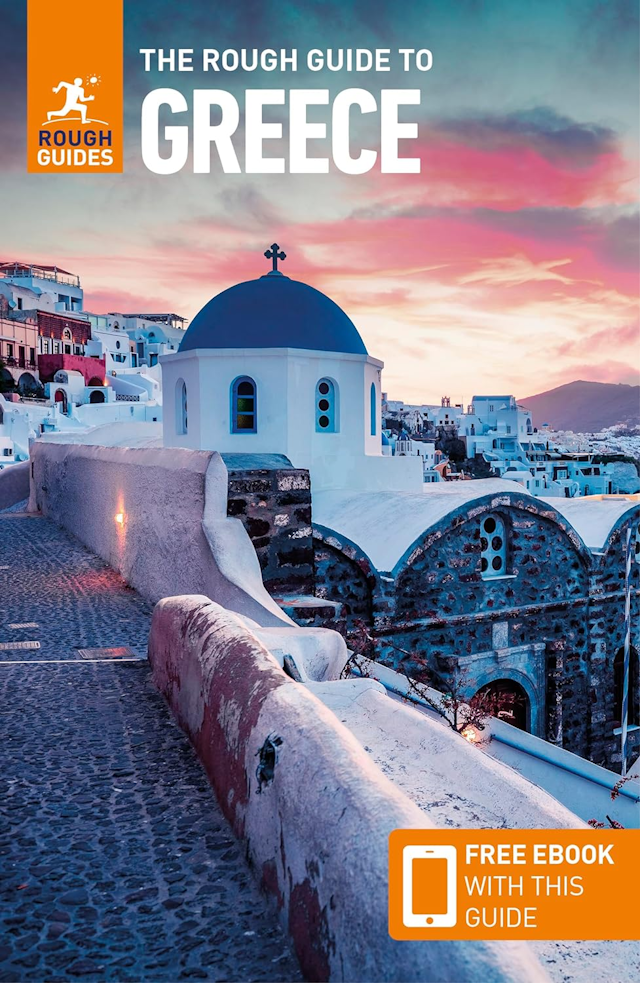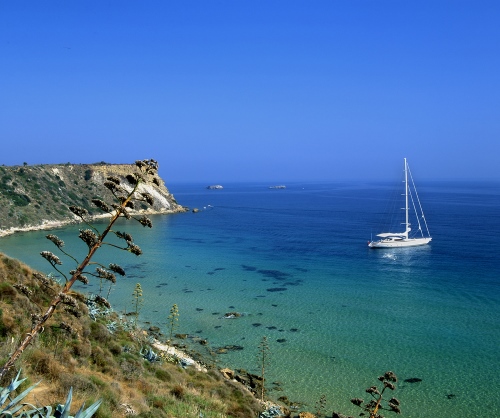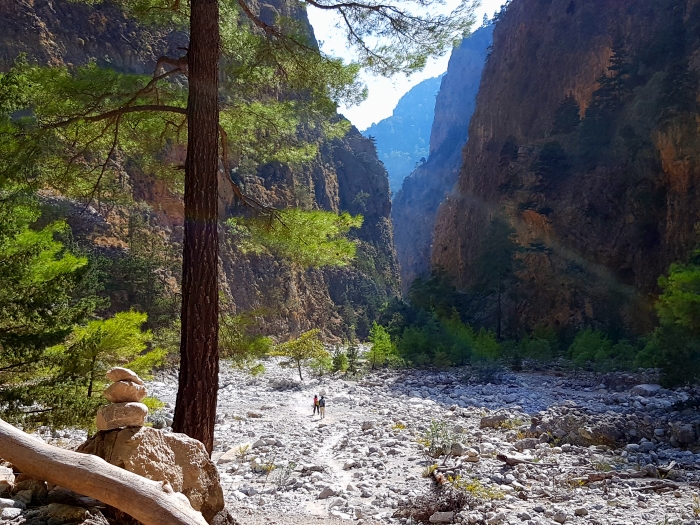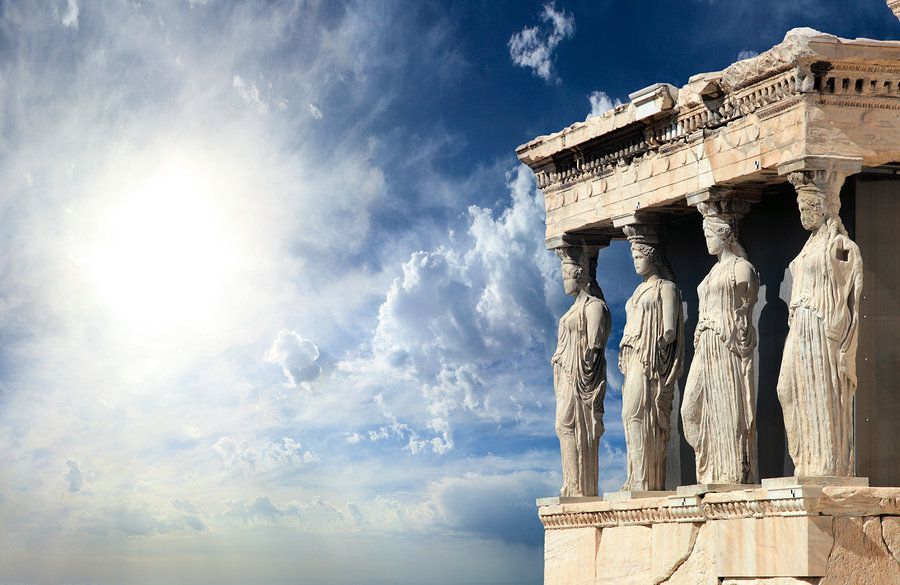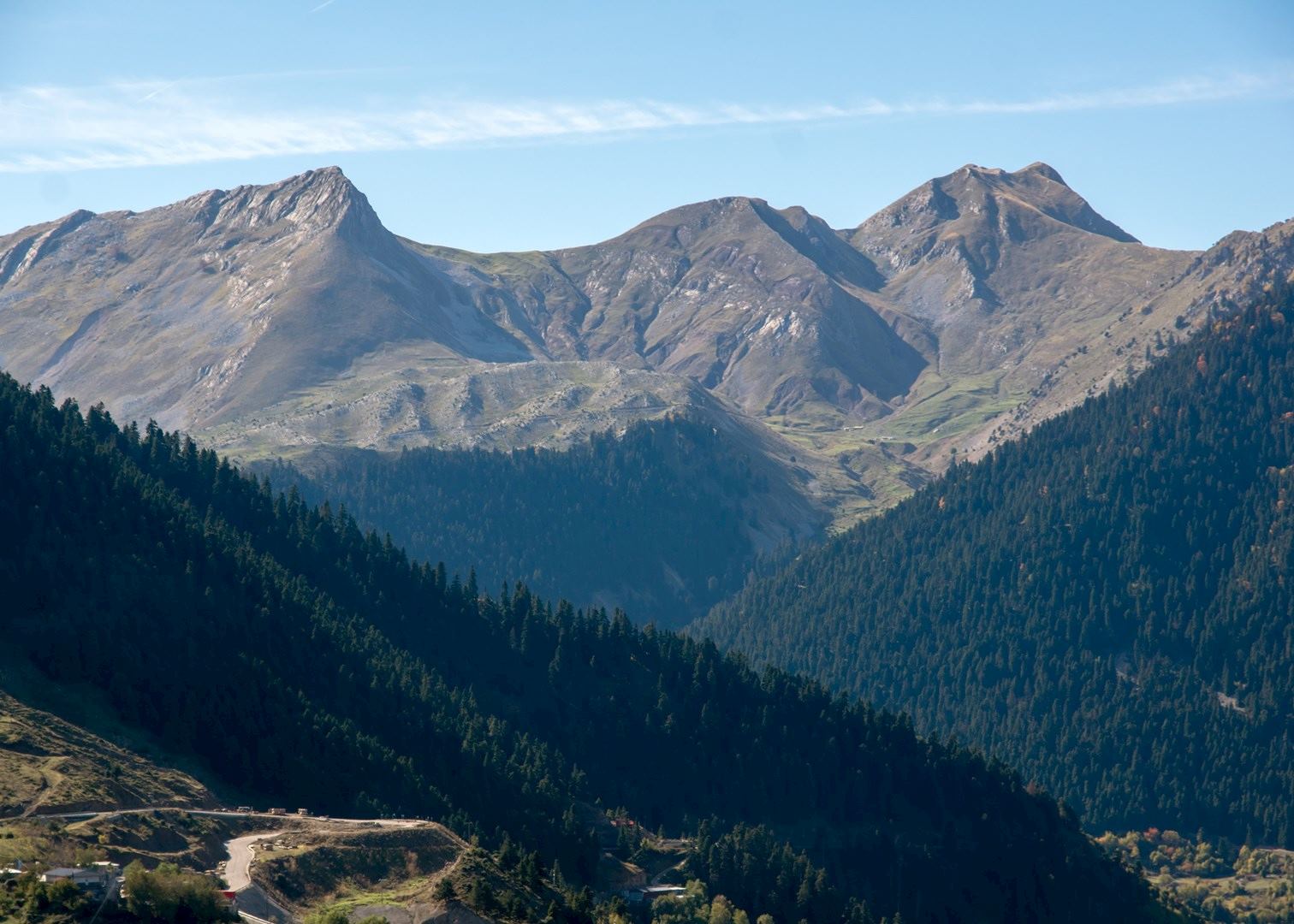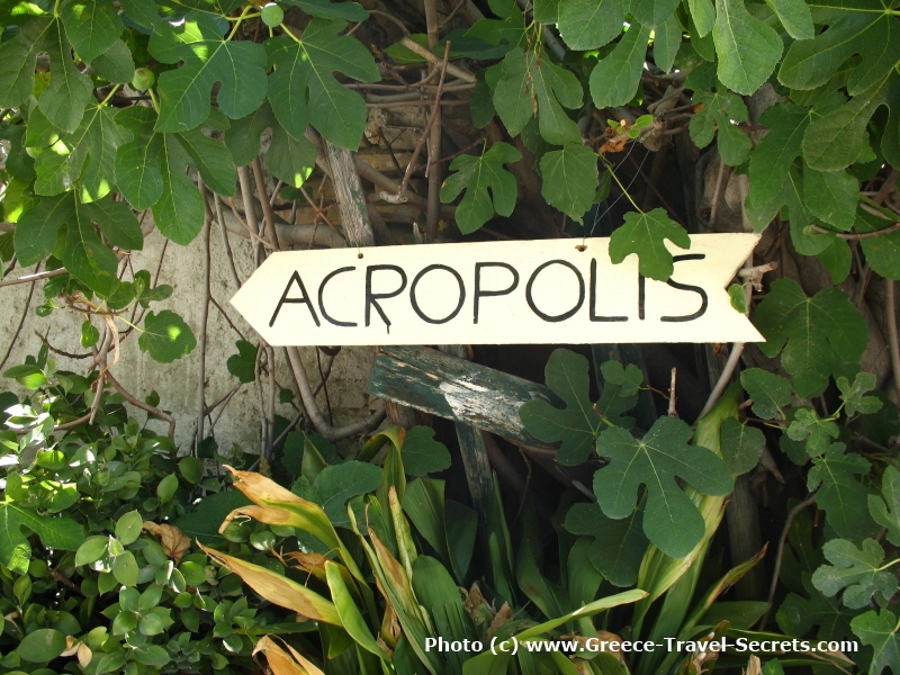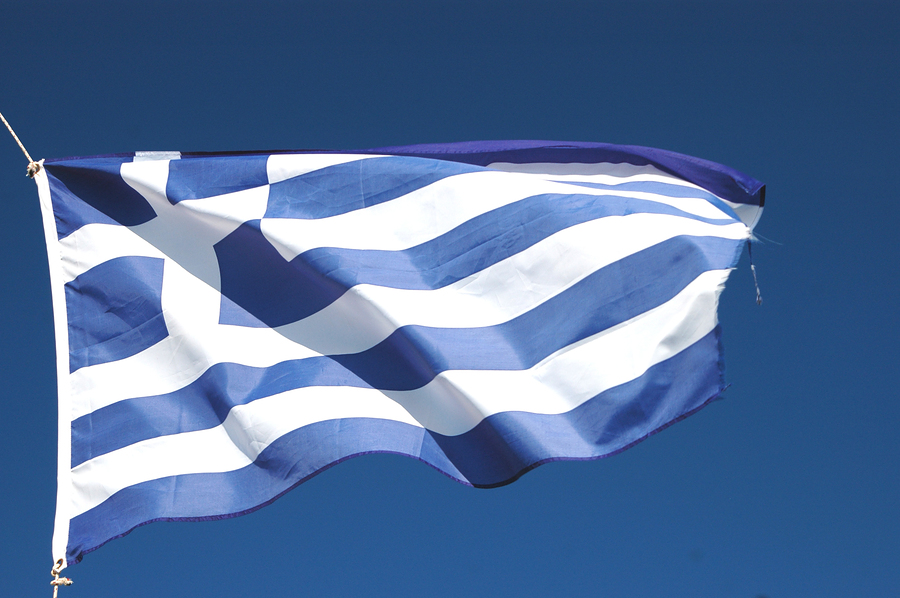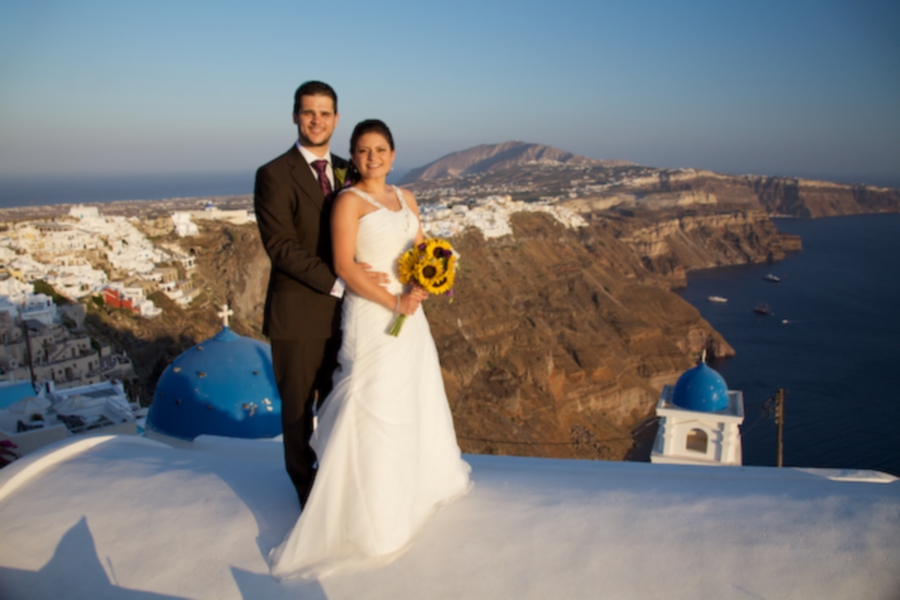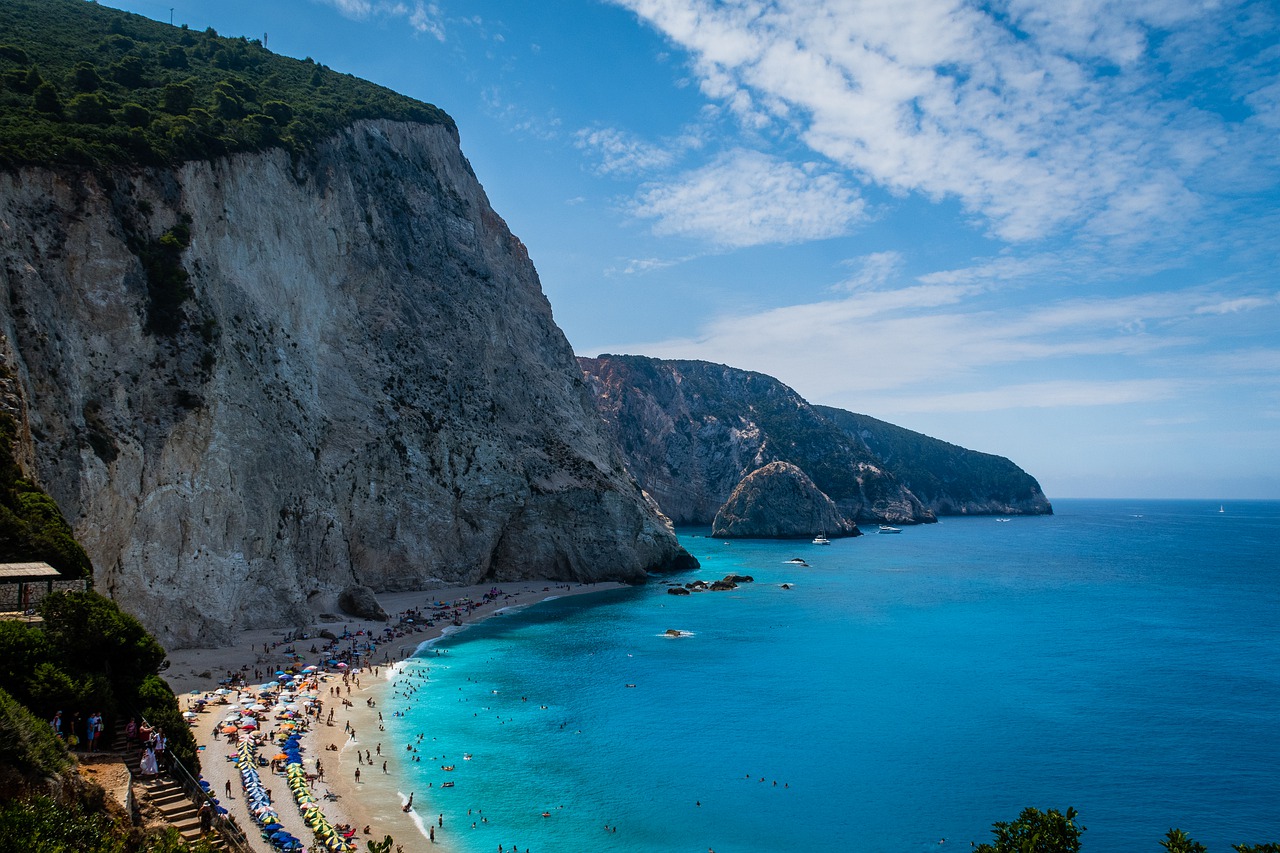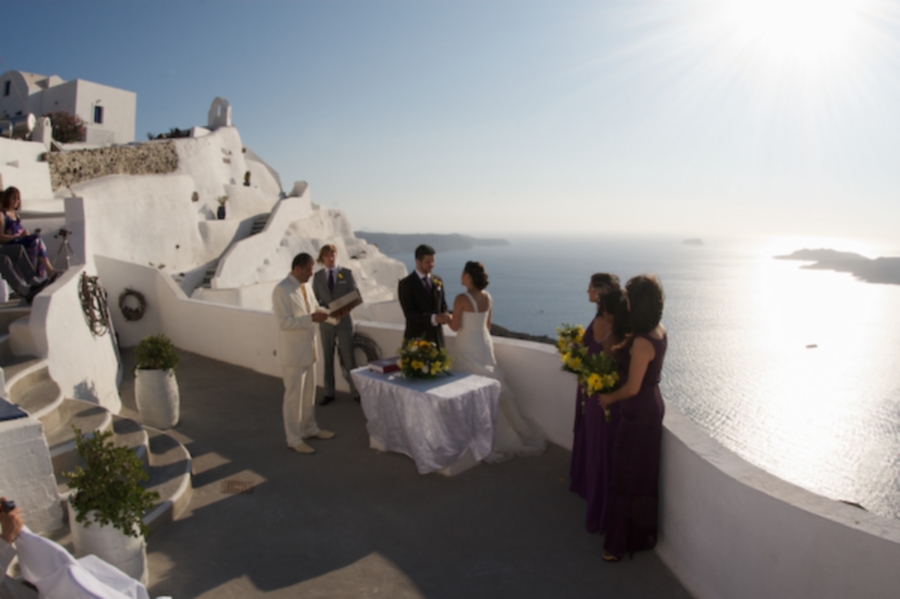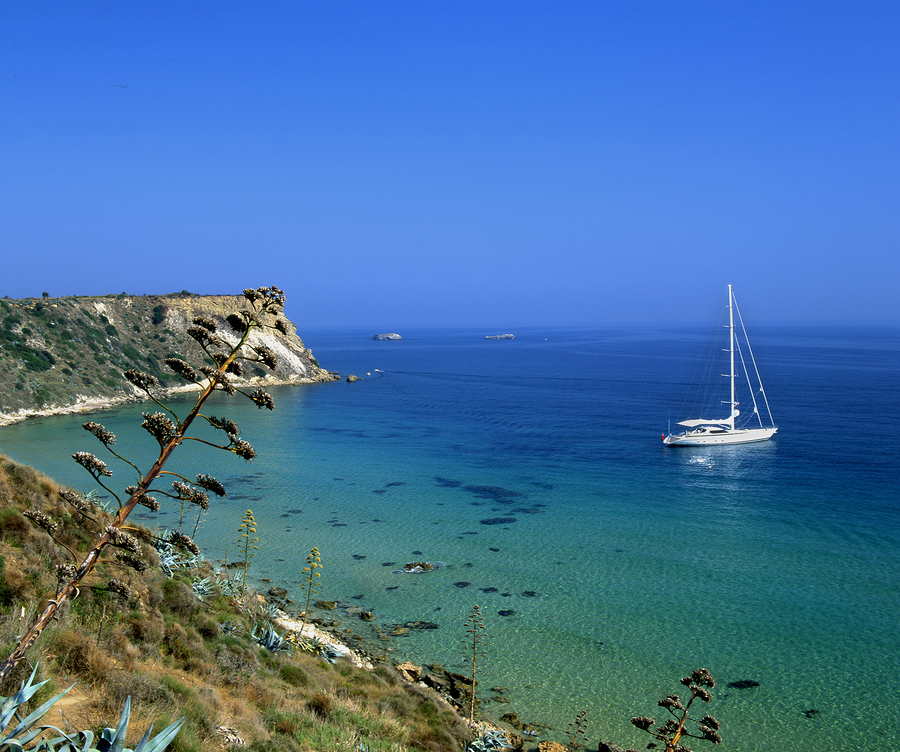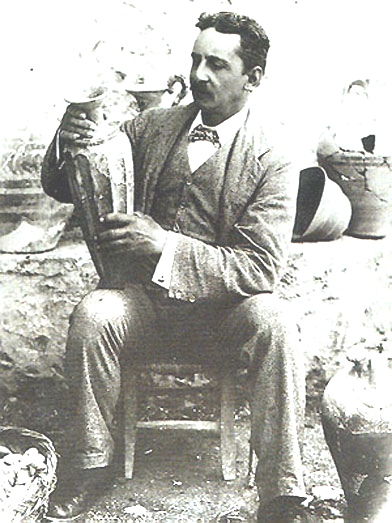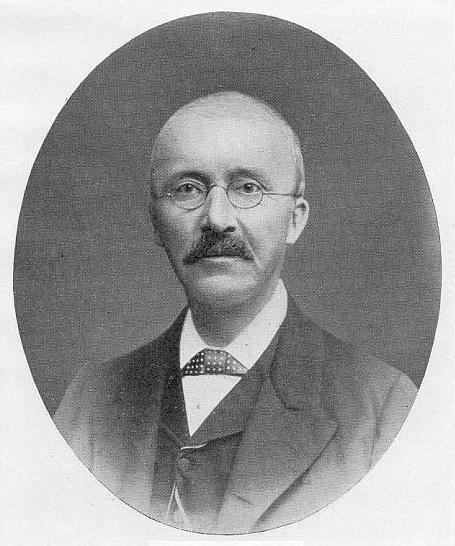- HOME
- Macedonia & Thrace
- Mount Olympus
- The Greek Gods
The Greek Gods
The home of the Greek Gods was the top of Mount Olympus, and among the better-known Gods and Goddesses in the Greek pantheon were Zeus, Poseidon and Aphrodite.
Gaze at the highest mountain in Greece, Mount Olympus, which rises dramatically from close to the Aegean Sea, and it is easy to understand how it was regarded as the home of the Greek Gods. The full stories of the Greek Gods have inspired many books, one of the standard works being The Greek Myths by English poet and scholar Robert Graves (1895-1985).
The stories of the Gods were originally oral tales, passed on in the way that the Homeric legends of The Iliad and The Odyssey were, by a skilled story-teller to a rapt audience. They were not written down until about the 6th century BC, and subsequently we have been able to compare similarities in the tales of the Greek Gods with tales of Gods from other countries.
In Greece the Gods are not part of the nation’s modern religious beliefs, which are Christian, but they are bound up in the folk tales and legends of the country’s pre-history, in dramatic fashion.
Where the stories came from is uncertain, but it is likely that many different strands were involved. One such was Hesiod, an 8th century BC Greek poet who, at the same time that Homer was relating/creating his own two epic verses, was responsible for Theogeny, a poetic work which tells ‘the origin of the Gods’. This would have been influenced by tales from other cultures which made their way to Greece, particularly from the Near East, and by tales handed down by the Mycenean civilisation which was dominant in Greece in the 2nd Millennium BC.
Zeus
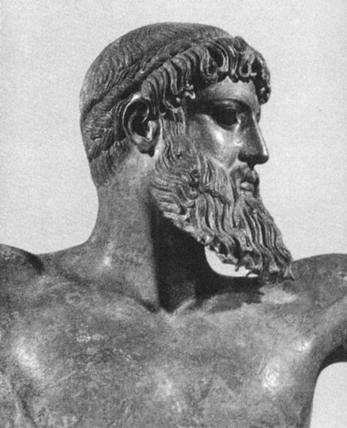 Zeus
ZeusThe Father of the Gods is Zeus, who ruled over all the Gods from Mount Olympus. Zeus was the youngest son of two of the Titans, Kronos and Rhea, the Titans being the 12 children of Uranus and Gaea, the Heaven and the Earth. It was Zeus who seized control of the universe and became the God of the Sky, the Rain God, and Father of all later Gods and mortals.
Poseidon
 Poseidon
PoseidonOne of Zeus’s brothers was Poseidon, who became the God of the Sea and was the father of the winged horse, Pegasus. Poseidon fathered many children, susceptible as he was to the charms of the numerous water nymphs that existed. Another of Zeus’s brothers was Hades, the God of the Underworld, so between them these three brothers took command of the sky, the sea and the land of the dead.
Zeus’s son Apollo was the God of Music, of Agriculture, of Healing and of Prophecy, amongst many other things, while Dionysos is another familiar name in Greece – the God of Wine. To the Romans he was Bacchus, and the Roman Hercules is the Greek Herakles, whose Twelve Labours are among the best-remembered of Greek myths. Finally, amongst these best-known of the Gods, is Aphrodite, the Goddess of Love and Beauty, who to the Romans was known as Venus.
Latest Posts
-
Explore Vikos Gorge: Hiking, Rafting, and Food in Zagori
One of the most impressive canyons in Europe and one of Greece’s favorite mountain destinations, Vikos Gorge invites hikers and food lovers alike. -
Lefkada: The First Ancient Theater of the Ionian Islands Comes to Light
The first ancient theater ever discovered in the Ionian Islands is located in the heart of the ancient city of Lefkada, established before the end of the 7th century BC. -
5 Epic Island Hikes in Greece for Spring Explorers
This spring, five majestic peaks across Greece’s islands invite us to lace up our boots and discover a wilder side of island life. -
Greek Ferry Services to Halt on May 1 Due to Labor Strike
Ferries in Greece will remain docked for 24 hours on Thursday, May 1, as the Pan-Hellenic Seamen’s Federation (PNO) joins Labor Day mobilizations announced by the General Confederation of Greek Labor… -
Sifnos: Greece’s Hidden Culinary Star on the Rise
Sifnos, a Cycladic island, is gaining fame for its rich culinary heritage, especially the beloved melopita honey-cheese tart. -
Easter in the Mystical Castle of Monemvasia
In the castle town of Monemvasia, with its dramatic medieval backdrop and sea views, Easter is a deeply spiritual and atmospheric experience. -
Easter in Leonidio: A Tapestry of Light, Culture and Cliffs
In Leonidio, Easter comes alive with handmade hot air balloons in the sky and lanterns made from bitter oranges in the streets. -
The Lesser-Known Traditions of Greek Easter
Step off the beaten path this spring and discover the enchanting — and often surprising — Easter traditions found across Greece. -
April 9 Strike in Greece to Impact Public Transport, Ferries and Air Travel
Transportation and travel across Greece will face disruptions on Wednesday, April 9, as public transport, ferry and aviation workers join a nationwide strike called by Greek labor unions. -
Ancient Theater of Lefkada Brought Fully to Light Following Systematic Excavation
The Greek Culture Ministry has announced that the first ancient theater ever identified in the Ionian Islands has recently been brought fully to light on Lefkada, revealing an impressive monument that…

